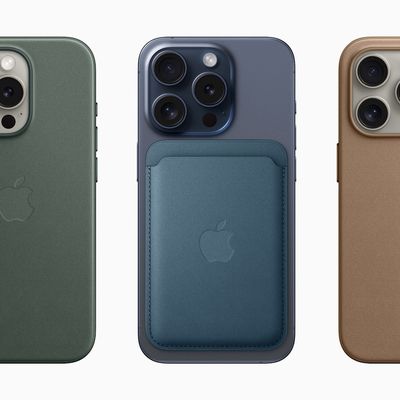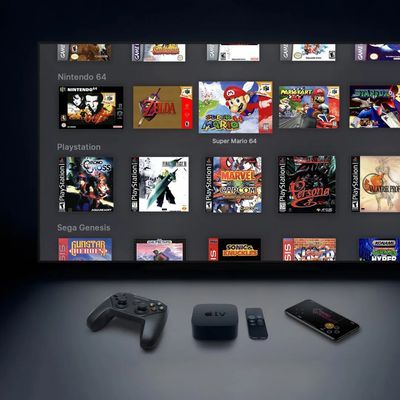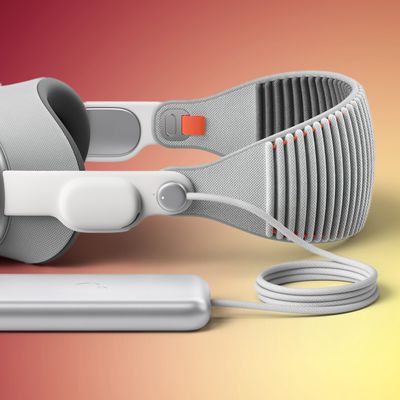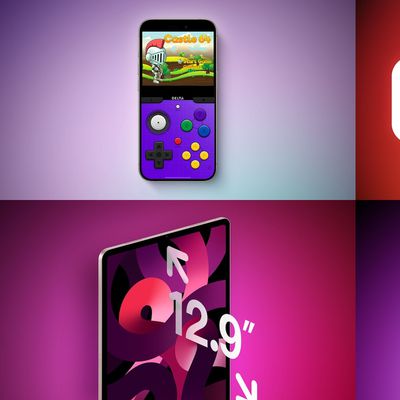At Fortune's recent Brainstorm Green conference, Apple VP of Environmental Initiatives Lisa Jackson spoke about her role at Apple and the company's green initiatives, reports Philip Elmer-DeWitt of Apple 2.0. Jackson joined Apple's executive team last year and formerly served as the head of the Environmental Protection Agency.
After a brief discussion of Jackson's background and Apple's green achievements, the highlight of the 16-minute interview occurs when Jackson was questioned by Patagonia's environmental chief Rick Ridgeway. Ridgeway inquired how Apple can boast about reducing its carbon footprint on individual products, when its overall footprint increases each year as the business grows. After chuckling about being "put on the spot," Jackson responded seriously:
Listen, if all of us sustainability professionals have to resort to "make and sell less stuff" as the answer to the problem, then we are suffering from an extraordinary lack of imagination. And innovation. One of the things that your company -- certainly I think Apple -- is about is trying to understand where the technology innovations and other innovations are that help us to reduce carbon intensity. We're not advocating for less people to have access to our products. That's not the answer we're looking for.
Apple has made great strides in the area of the environment, reducing the carbon footprint of its Mac business by 27 percent over the past eight years and powering most of its facilities almost entirely with renewable energy.




















Top Rated Comments
So, I may be in the minority here, but I dont throw away computers. If I can continue to use them in some function in my house, even if its just as a jukebox in my bedroom, then Ill keep them. If not, Ill try to sell them or give them away before recycling them.
And I think that Apple has been making efforts to improve the length of their usable life. For example, with a newer iMac you can set it to target monitor mode and use it as an external monitor for whatever your new computer is (assuming its got Thunderbolt and is a Mac). So if youre willing to look for uses like this, I dont see any reason why people should be throwing away iMacs on a regular basis.
Just because they give you a new (or more likely, refurbished) iPhone or Mac on the spot doesn't mean they're throwing your broken one entirely in the trash. Where do you think refurbished units come from in the first place? They obviously use them, or perfectly usable parts from them, to put refurbished units together.
I have friends that are Apple geniuses. All Apple products are repairable, and all have way more useful lifespans than any other products in the categories they compete in.
Also, I enjoy the design of Apple products. I don't want them thicker, heavier or plastic to get a better repairability score on iFixit. If Greenpeace likes Apple products, they can't be that bad.
I don't think Ms. Jackson understands the purpose behind "make and sell less stuff." Most sustainability experts who advocate for "make and sell less stuff" aren't looking to deprive people of Apple's products (and other things). Maltz touched on what they advocate with the repairability issue. The concept behind "make and sell less stuff" is that you can achieve this by improving the repairability of your products, making them last longer, which means Apple and other companies will not need to make and sell so much stuff.
Apple can still make money by selling "genuine Apple parts" to replace broken parts. It will also create jobs and small businesses for people who would like to, or enjoy, fixing them for folks who may not be savvy enough to do it themselves. Yes, there will always be people who want to get the latest and greatest, but they can sell their older device to one of these shops who can refurbish and resell them (similar to Gazelle). Heck, Apple could even create a used product certification program similar to many of the used car certification programs that exist today.
Ms. Jackson, I doubt you'll see this, but if you do, innovation means finding a way to "make and sell less stuff" while making sure people are not deprived (fun fact: capitalism thrives on scarcity; just saying). It's not just about using fewer resources to make a ****** ton of products, it's also about reducing or eliminating the need to make a ****** ton of products in the first place. Than can be done by being smarter about things like usability and product life cycles.